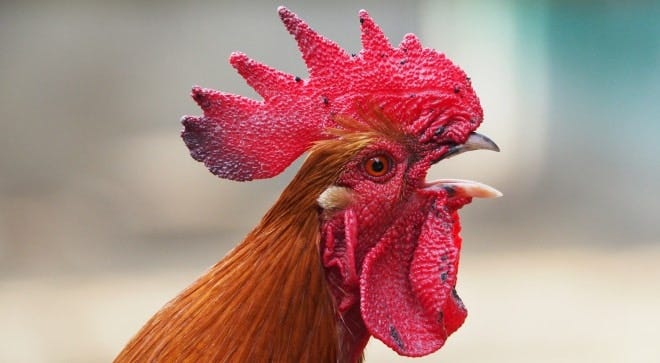Why Roosters Crow: The Science Behind Their Morning Calls
Written on
Understanding Rooster Crowing
When we think of animal sounds, we often recall the mooing of cows, the meowing of cats, and the barking of dogs. However, the crowing of roosters stands out as one of the most distinctive animal noises globally. This iconic sound is typically associated with the arrival of a new day. But what drives roosters to crow so early in the morning?
It's essential to note that roosters can crow at any time and for various reasons. This can include responding to specific sounds, disturbances, or even while guarding their territory. They also vocalize when they feel threatened or want to communicate with one another. In fact, roosters will find almost any excuse to let out a crow.
Roosters and Light Sensitivity
Roosters are known to crow in response to light changes throughout the day. Interestingly, they can even be triggered by mundane stimuli, such as car headlights or other artificial lighting. Typically, they crow at dawn, but their behavior is closely tied to fluctuating light levels.
Rooster Hierarchy and Crowing
Another fascinating aspect is that the most dominant rooster is usually the first to crow. Those with higher social status initiate the crowing, while younger, less dominant roosters wait for their turn, only calling out after the others. Roosters in close proximity will use their crowing to assert territorial claims. The lower-ranking roosters often bide their time until it's appropriate to join in.
Circadian Rhythms in Roosters
Roosters possess an internal clock that helps them predict the break of dawn. They often begin crowing hours before sunrise. Similar to other birds, roosters follow a daily rhythm, known as circadian rhythms, that dictates their activities. As dawn approaches, they vocalize, signaling their readiness for the day and their search for food.
Territorial Behavior of Roosters
The loud crows serve as a warning to other roosters, establishing their territory as the sun rises. This vocalization communicates to rivals that they should stay away unless prepared for a confrontation.
Roosters frequently seek higher ground to crow, gaining a better view of their surroundings and ensuring that their calls reach a broader audience, further reinforcing their territorial claims.

Chapter 2: The Significance of Crowing
Exploring why roosters crow, this video delves into their natural behaviors and the reasons behind their morning calls.
This video explains why roosters are particularly vocal in the early hours and what it signifies in their social structure.